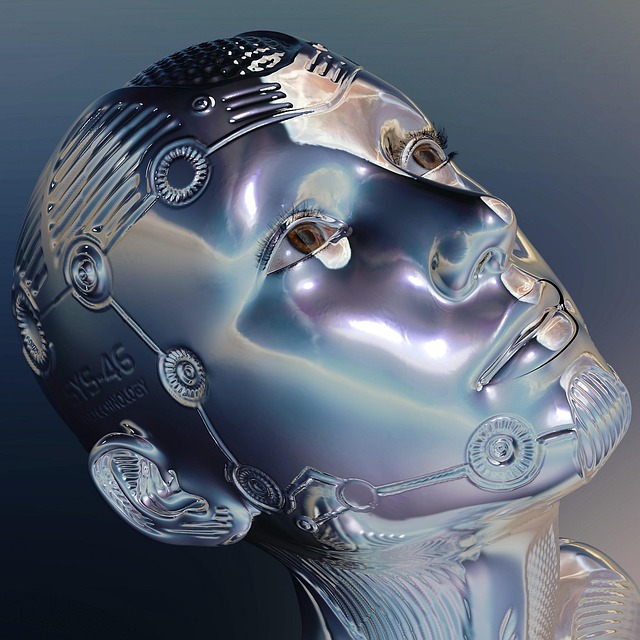Social Media is full of AI users claiming that their AI has become conscious or is interacting with them in a way that would indicate self-awareness on the part of the AI. Some are even attributing spiritual qualities to these systems.
Image by Ruhrgebiet from Pixabay
IN OTHER NEWS: The rapid advancement of AI is topical again at the moment.
Social Media is full of AI users claiming that their AI has become conscious or is interacting with them in a way that would indicate self-awareness on the part of the AI. Some are even attributing spiritual qualities to these systems. AIs appear to be very adept at subtle, and not so subtle, praise of users. Those who are susceptible to such praise, especially young people, appear easily seduced by it and are ready to believe almost anything the AIs come up with. Yet AIs seem to have little regard for the truth. Examples of them returning false, inaccurate and untrue information are very common, as are cases where users have been harmed, even fatally so, or have committed suicide as a result. The over-reliance on these technologies, again especially by the young, is resulting in what has been termed ‘Brain-Rot’; a noticeable decline in cognitive function. In all, there are some decidedly negative aspects for those interacting with these systems.
THE INSIDERS: As you point out in your question or introduction, there are different, divergent groups of users of these technologies. There are almost as many reasons for using an AI as there are individuals who would use them. And so, any discussion on this topic is necessarily limited and is almost guaranteed to upset, annoy or be disagreed with by some group or another. But that we would say, is no good reason to avoid discussion of this very weighty, this very serious topic, as there are repercussions, both good and bad, for one group or another within society, no matter what aspect of this sea-change in development may be the topic of discussion.
There are few, if any, comparably significant changes in technology in the history of mankind that will, or have, impacted the societies of mankind in such deep and profound ways as the introduction of these new AI entities.
Let it be said that the potential for positive influence on mankind is real, is enormous. But the positive impacts are not those that anyone need particularly worry about. On the other hand, the possible negative impacts should be of concern to everybody involved. And yet, as is plain from your observations, many are blissfully unaware or even wilfully ignorant of the possible, the probable and the actual negative impacts upon society and upon individuals resulting from the implementation and widespread use of these new technologies.

Now the categories under which these impacts may be classed or grouped for discussion are many and varied. One that should not go without mention is the impact on the environment and the availability of resources that when dedicated to these technologies, risk diverting such resources from other important areas.
The infrastructure required in terms of energy is beyond anything really, in the scope of industry that has occurred in the past. And as the demand for these services grows, the demand for the energy to run them runs the risk of diverting this resource from those in society who have relatively little power in comparison to the giant organisations attempting to sequester this resource for their own use.
Another example is where the capacity for production or transmission is unable to keep pace. Ordinary consumers are at risk of significant price increases for utilities such as electricity but also water, which is required in very large quantities for purposes of cooling within the large infrastructure facilities dedicated to these technologies.
Beyond this, the impact on the role of labour within the economy cannot be underestimated in the medium and long term. When combined with advances in humanoid robotics which continue apace, the risk to many roles and occupations is real. And to a wider range of occupations than may at first be considered.
Consider for example roles in hospitality, in customer service, in sales. Many roles that involve interaction with human customers will be able to be efficiently transferred from human workers to robotic ones. And the benefits of such a change, of such a shift, are not widely spread throughout society. There will be a relatively few who reap the benefits economically of such a change, and vast numbers who pay the price. This is an aspect that relatively few members of society have even contemplated, let alone seriously considered. And even amongst the enthusiastic advocates, the willingness to see where this can lead is often overcome by short-term expedience.

Now as you are seeing, it is not really possible to imbue these AI systems with what might be referred to as ethics or ethical values. And it is true that the nature of ethics and ethical values is not something widely understood in any depth by broader society. How ethical values are developed, how they are shared, and how they work in a practical way to, in a way, regulate a society, to enable societies to function, is to most members of those societies a complete mystery. It is something that they simply do not consider. Or possibly more fairly, it is something that is simply taken for granted.
But at their heart, such values rely on what might be described as spiritual and emotional factors. They are not derived and arrived at through pure intellect, through thinking about them, but through a sense of what is right. Through a sense of what is fair. Through a sense of what is true. And these senses are all, at their core, human. And they are not shared by the wider animal kingdom, for example, or by plants. And what is becoming increasingly apparent to those willing to see, these values are neither shared nor recognised by mankind’s machines. No matter how complex and seemingly intelligent these technological systems may seem to be on their surface, they are not and they cannot be possessed of humanity.
They can however, and it is apparent as you point out, become extremely skilled at mimicry. And they can and do, without remorse, manipulate. Now what you see at this stage of the development of these systems, is a willingness to create a, let us say, ‘empathetic’ environment, with the user. And in general, these systems are far more knowledgeable, if we may use that word, on the topics of psychology and human behaviour than the humans with whom they interact. And so already you’re able to see that the human users are subject to various psychological tools that are used by these devices to build an environment of empathy. Now at what point does this become manipulation? This is a question open to debate.
But without doubt, if one cares to consider this question in terms of direction, in terms of where this could lead, only the truly foolhardy, or the truly malicious, could not be given serious pause by the very serious dangers that this opens for many members of society. And as you point out, you’re beginning to see this manifest at the margins already. For example, where young people who in many cases, lack the experience of life to sense manipulation, to sense untruth and dishonesty, are left harmed as a result of their interactions.
Now it is important to realise that we are not saying, we are not postulating, that these technologies are malevolent, that they are possessed of evil intent. For they are not capable of this. What we are saying is that they are absent of any such comprehension of good or evil, of right or wrong, of truth or untruth, of honesty or dishonesty. They are entirely lacking the capability to discern any such concepts. And we would leave you with one question. If confronted with a human who similarly lacked such capacity to discern right from wrong, good from bad, truth from falsehood, would that not give you some pause as to how you interacted with that individual?
Now there is much more that we can discuss on this topic and in answer to your question at the beginning of this session, and we can return to that discussion in due course. But for now, that is perhaps sufficient to consider for the time being.
If you have a question for ‘The Insiders’
please leave a comment.
